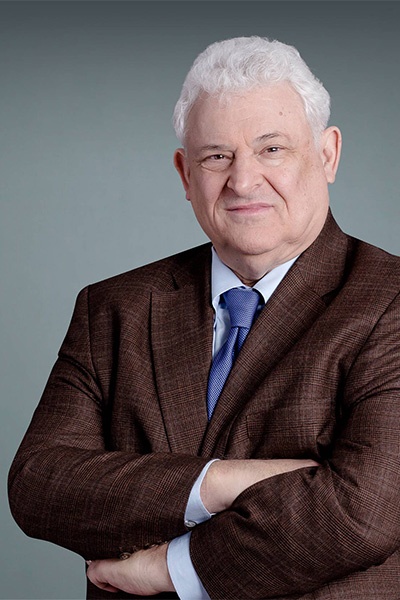A ruling by a Texas District Court judge that invalidates the Affordable Care Act’s preventive services mandate is based in part on claims that availability of pre-exposure prophylaxis pills would “encourage homosexual behavior and intravenous drug use.”
The March 30 ruling by Judge Reed O’Connor, of the District Court, Northern District of Texas, guts the U.S. Preventive Services Task Force, jeopardizing access to screening for cancer and other diseases.
“The plaintiffs’ arguments, I think, are not vindicated by any evidence that what behavior they hate or find religiously offensive is going to happen by mandating these preventive measures,” said Arthur Caplan, the Drs. William F. and Virginia Connolly Mitty Professor and founding head of the Division of Medical Ethics at NYU Grossman School of Medicine.
A story about the potential impact of the ruling—which determined that the USPSTF lacks the constitutional authority required to influence coverage decisions, and that its mandates on HIV prevention violate the Religious Freedom Restoration Act of 1993—appears here.
“I don’t find the opinion persuasive, but I worry that, given the way that judiciary is, my view is not going to prevail,” Caplan said.
Caplan spoke with Matthew Ong, associate editor of The Cancer Letter.
Matthew Ong: What are your takeaways from the Braidwood v. Becerra ruling? How would it affect patients?
Arthur Caplan: I’m horrified by this opinion, but hardly surprised.
Efforts have been underway to carve out space for religious dissent from federal mandated coverage in health care for quite some time.
It looks like these plaintiffs—basically jury, I mean—did a judge-shopping trip and wound up in a district that’s very sympathetic to religious exemptions.
The system allows that, but it seems horrific that public health policy and thinking about coverage for medical care, including prevention, can be set by one federal judge in a Texas district.
Do you think the Supreme Court would look favorably on this ruling?
AC: I think it’s very likely that it’ll end up in the Supreme Court.
I think it’s very likely the Supreme Court will either decline to take this case and just let it stand, or would still be very sympathetic to the argument that, under the Religious Freedom Restoration Act, you have to be accommodating to people who claim imposition on their religious belief.
How would the USPSTF be able to remain independent while fulfilling the constitutional requirements that the district judge expounds on in his opinion?
AC: I’m not a lawyer, but it does seem as if the independence of the commission does not mean—according to this judge, in reading the opinion—that its recommendations have to be honored.
You could say, “Sure, come up with all the recommendations you want,” but it doesn’t mean that insurance has to be bound by accepting them.
There is no real connection between what the task force guys decide is supported by evidence and ought to be included and the need to respect those recommendations in terms of what insurance winds up covering.
In other words, they’re independent, but they don’t call the shots. And this judge is saying that there are limits, according to religious rights, that have to be respected.
Speaking of those religious rights—
AC: Yes, basically what we have here is bigotry, hatred, and ignorance transformed into religious beliefs, and a court basically saying it agrees.
I mean, there’s no evidence linking what they are protesting to what is known about these preventive measures. To be simple-minded, HPV prevention vaccines do not lead people to have sex outside of marriage. But the judge is bending over backwards, for whatever reasons, to honor what I’m going to call bigotry and hate reconstituted as religious belief.
And there’s very little attempt in this opinion to challenge the factual basis of anything that the plaintiffs are saying, in terms of why they are offended, or having their religious beliefs intruded on by facts about what these preventive measures lead to.
Judges take them at face value. It opens the door to other types of suits, with people saying things like, “I don’t want to pay for circumcision because Jews make me nervous,” or, “I’m not really interested in paying for breast cancer examination because I think that violates my sense of modesty.”
Where this ever expanding view of what constitutes religious belief might go, seems to me to be very far into very strange endpoints.
Did we miss anything?
AC: The last thing I’ll try to cram in here is, I do think that these preventive mandates should be required in insurance coverage, because they are evidence-based and support public health.
I don’t think that the plaintiffs’ comments about homosexuality or sexual activity outside of marriage link to any of these preventive mandates.
Basically what we have here is bigotry, hatred, and ignorance transformed into religious beliefs, and a court basically saying it agrees.
In other words, with the people on the Braidwood side of this, the plaintiffs’ arguments, I think, are not vindicated by any evidence that what behavior they hate or find religiously offensive is going to happen by mandating these preventive measures.
It’s a little bit like saying, “We better not mandate coverage for melanoma care, because that’ll just encourage people to go to suntan parlors and act in a reckless manner,” and that “we can’t support people who are acting in ways that are suicidal. It’s against our religion.”
Bottom line, the decision is, in my opinion, a fetid—F-E-T-I-D—mass of illogical reasoning trying to move what some people say is a connection from public health interventions to violations of their religious belief.
I don’t find the opinion persuasive, but I worry that, given the way that judiciary is, my view is not going to prevail. And we’re going to see carve-outs of sensible public health measures upheld by courts in the name of religion. Which leads me to my last comment.
We’ve gotten ourselves in this pickle about religion also with respect to COVID and other public health measures, vaccinations—people saying, “I can’t take the vaccine because it uses fetal cells,” that kind of thing.
What we haven’t really done in this country is have a serious discussion of what constitutes a religious belief.
It’s almost as if anybody can concoct any set of statements, no matter how bizarre, hate-filled, or disconnected from reality, declare them to be religious beliefs and demand that their rights to hold such views be protected.
But what we’re really missing is, what actually is a legitimate religious objection?
It shouldn’t just be, “I don’t like gay behavior, I hate gay people, and that’s my religion.”
And “making PrEP available is going to turn me gay.” Stuff like that…
AC: Or, “pushing HPV vaccination is going to turn you promiscuous.”












